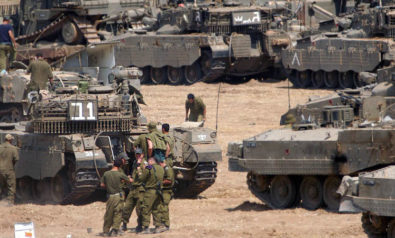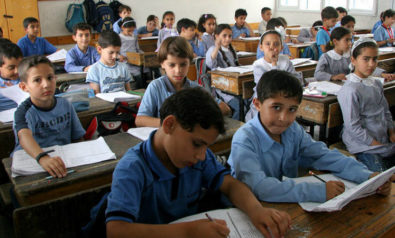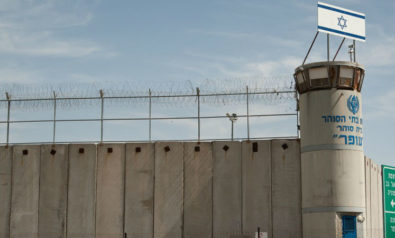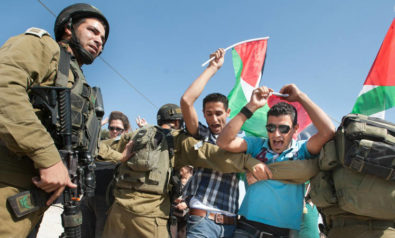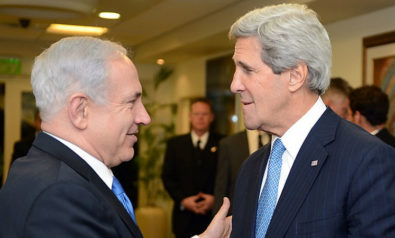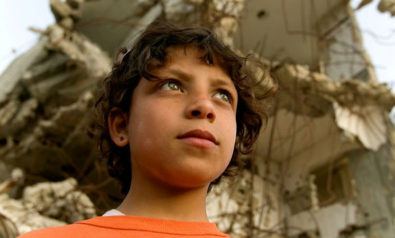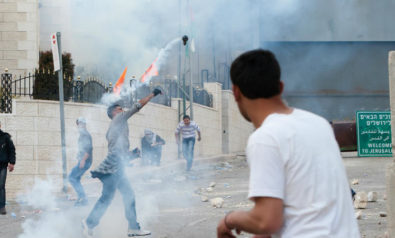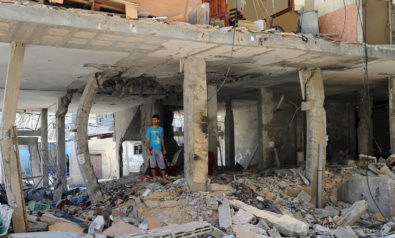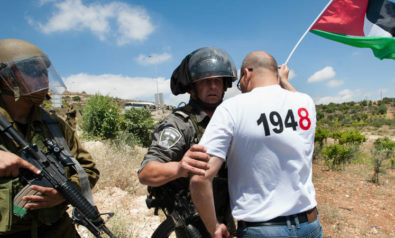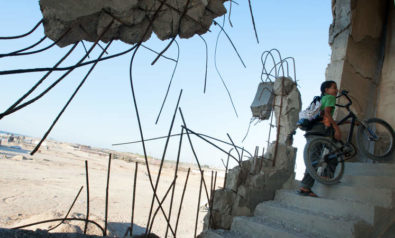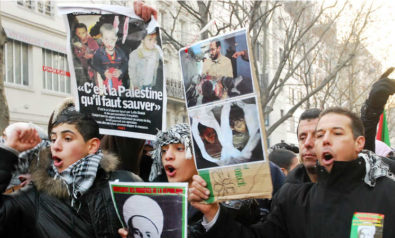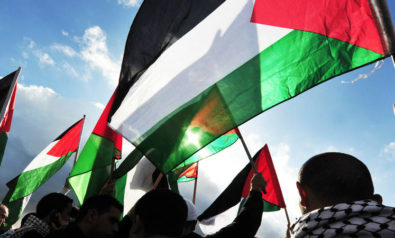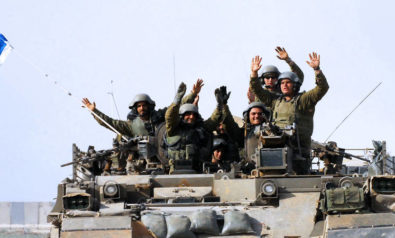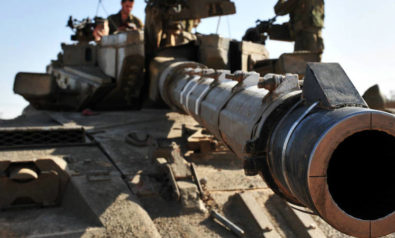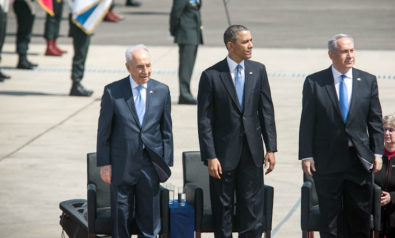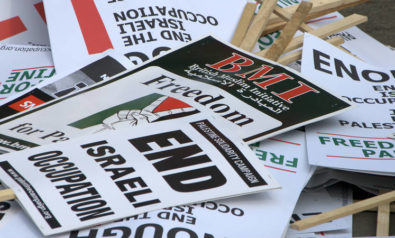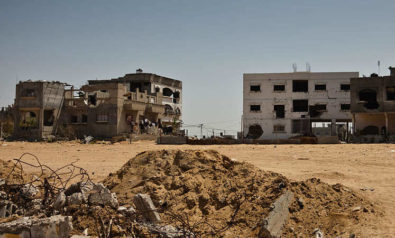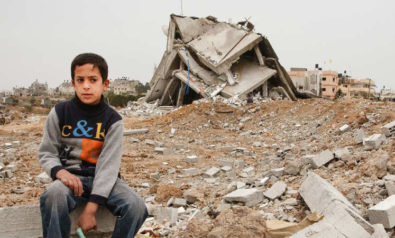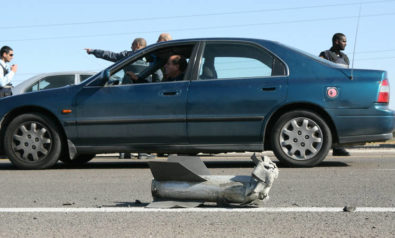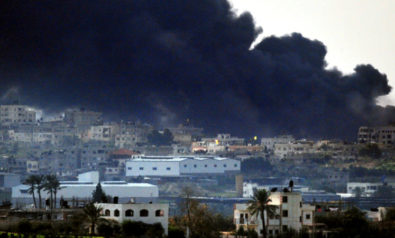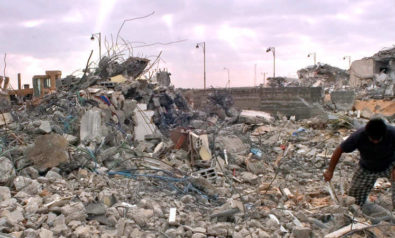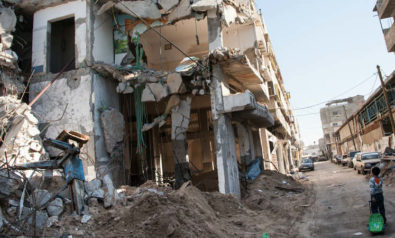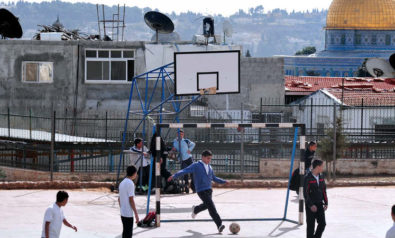With yet another Gaza conflict, Israelis and Palestinians are far from reaching a lasting peace settlement.
Background
The Gaza Strip, a densely-populated Palestinian enclave with 1.8 million people, has once again been a scene of violence, death and destruction since July 8. At the time of writing, Operation Protective Edge, an Israeli military offensive on the Hamas-controlled territory, has killed over 840 Palestinians and caused thousands of injuries, mostly civilians. Israel has lost 35 soldiers and three civilians, including one foreign national.
Since the war between Israel, Hamas and other Palestinian factions began, Gaza has been hit by thousands of Israeli airstrikes, while rocket fire into Israel has not come to a halt. After earlier Israeli military operations in Gaza, including Cast Lead and Pillar of Defense in 2008-09 and 2012 respectively, the latest conflict has seen Israel Defense Forces launch airstrikes on the Palestinian territory and then a ground offensive.
The conflict erupted after three Israeli teenagers were kidnapped and killed in the West Bank in June. Israeli officials accused Hamas of abducting them, without presenting evidence, while the latter denied having any involvement. In response, Israel conducted mass raids in the West Bank, with hundreds of Palestinians arrested, including Hamas members who were previously released under an earlier prisoner swap.
Amid these raids, and the murder of a Palestinian teenager, non-Hamas-affiliated factions fired rockets into Israel, which were followed by Israeli airstrikes. As tensions mounted, Hamas claimed responsibility for rocket fire for the first time in 20 months. A bloody war was the result.
The international community has attempted on several occasions to broker a durable truce. While there have been humanitarian ceasefires over the course of the conflict, both sides have failed to reach a consensus over a long-term agreement.
Demands for Palestinian officials include lifting the siege on Gaza, which has been in place since 2007; the freeing of prisoners; and the re-establishment of the territory’s air and sea ports. Israeli officials have called for Gaza to be demilitarized.
Why is the Gaza Conflict Relevant?
The conflict’s causes must be seen in a wider context involving two key issues. First, the Gaza Strip has endured a land, sea and air blockade by Israel and Egypt since 2007, a year after Hamas won elections for the Palestinian Legislative Council. Hamas is an offshoot of the Muslim Brotherhood and consists of political and armed wings. Israel, the US, the European Union, Egypt, Canada and Japan consider Hamas to be a terrorist organization, while Qatar, Turkey, Russia and Iran do not.
While Israel disputes that Gaza can be considered as occupied territory after its withdrawal in 2005, the blockade severely limits the movement of people and goods into and out of the territory. The United Nations still considers Gaza to be occupied land. Israel has occupied the West Bank and East Jerusalem since 1967.
Both Israelis and Palestinians have accused each other of war crimes in the current conflict, while UN Human Rights Commissioner Navi Pillay stated: “There seems to be a strong possibility that international law has been violated, in a manner that could amount to war crimes.”
Second, in April, US-mediated negotiations between the Palestinian Authority (PA) and the Israeli government broke down over several issues, including Israel’s refusal to release Palestinian prisoners; the PA’s signing of applications to 15 international treaties and conventions; the establishment of a Palestinian unity government; and Israeli settlements in occupied territories.
During the nine-month negotiations brokered by US Secretary of State John Kerry, the Israeli government advanced the construction of more than 13,850 new housing units in the West Bank. Settlement expansion has been a major obstacle to a peace agreement between Israelis and Palestinians. Israeli settlements are considered illegal under international law.
Both Israelis and Palestinians have accused each other of war crimes in the current conflict, while UN Human Rights Commissioner Navi Pillay stated: “There seems to be a strong possibility that international law has been violated, in a manner that could amount to war crimes.”
With no end in sight to the violence, Palestinian ambitions to join the International Criminal Court, and an expected UN inquiry into war crimes and human rights violations, the Israeli-Palestinian conflict will remain in the headlines.
The views expressed in this article are the author’s own and do not necessarily reflect Fair Observer’s editorial policy.
For more than 10 years, Fair Observer has been free, fair and independent. No billionaire owns us, no advertisers control us. We are a reader-supported nonprofit. Unlike many other publications, we keep our content free for readers regardless of where they live or whether they can afford to pay. We have no paywalls and no ads.
In the post-truth era of fake news, echo chambers and filter bubbles, we publish a plurality of perspectives from around the world. Anyone can publish with us, but everyone goes through a rigorous editorial process. So, you get fact-checked, well-reasoned content instead of noise.
We publish 2,500+ voices from 90+ countries. We also conduct education and training programs on subjects ranging from digital media and journalism to writing and critical thinking. This doesn’t come cheap. Servers, editors, trainers and web developers cost money.
Please consider supporting us on a regular basis as a recurring donor or a sustaining member.
Support Fair Observer
We rely on your support for our independence, diversity and quality.
Will you support FO’s journalism?
We rely on your support for our independence, diversity and quality.


